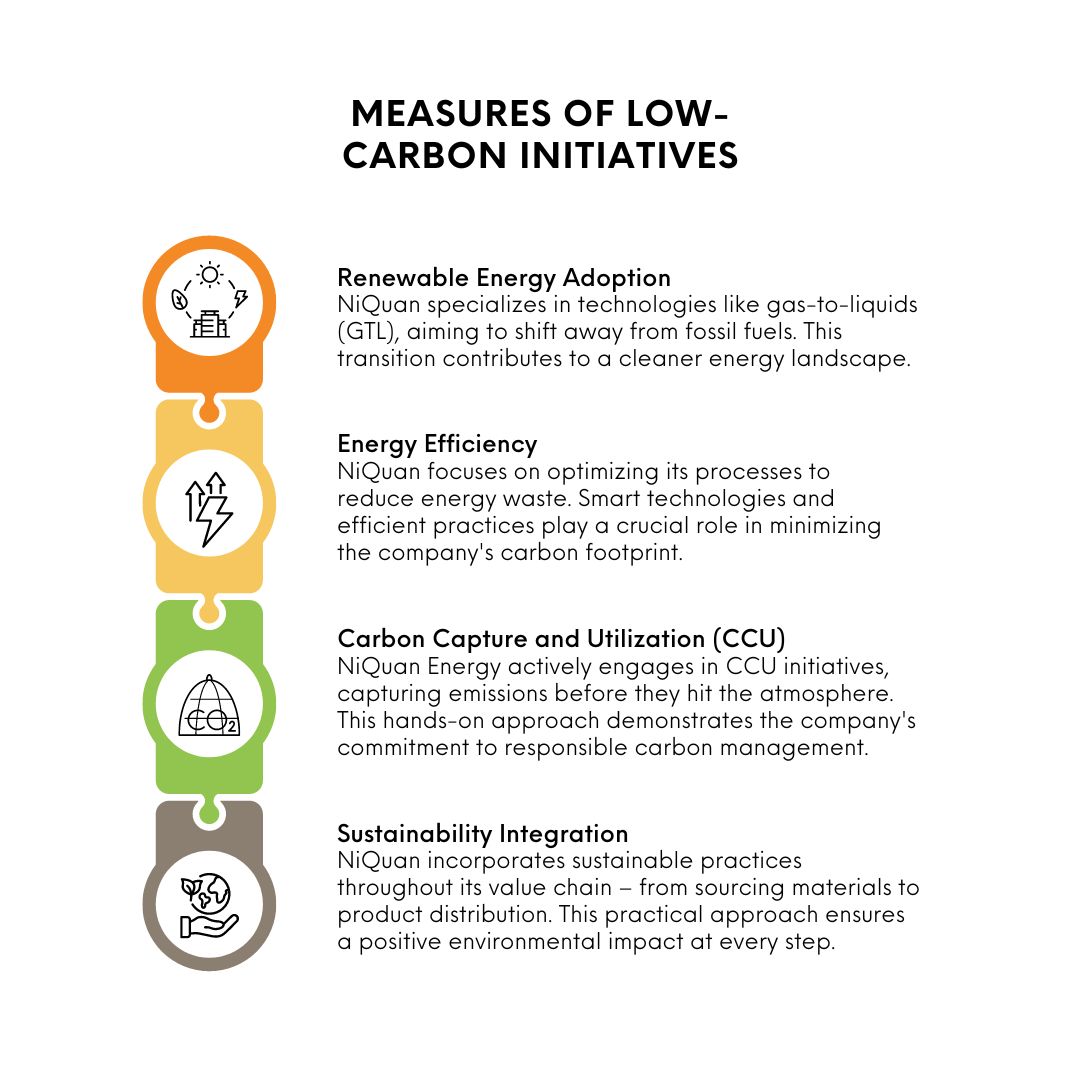
In the face of escalating climate change concerns, the global community is increasingly turning its attention to low-carbon initiatives as a critical strategy for sustainable development. But what does that mean exactly? Here we dive into the meaning and measures of low-carbon initiatives, exploring their significance in the context of NiQuan’s contributions.
Understanding Low-Carbon
Low-carbon simply means minimizing the release of carbon dioxide (CO2) and other greenhouse gases (GHGs). It involves practical actions across various sectors, from cleaner energy production and transportation to efficient manufacturing processes and waste reduction.
Measures of Low-Carbon Initiatives
- Renewable Energy Adoption
One of the fundamental measures in low-carbon initiatives is the transition to renewable energy sources. NiQuan Energy, for example, specializes in the development and utilization of proven technologies like gas-to-liquids (GTL) and other clean energy solutions. These technologies play a crucial role in promoting a more sustainable energy landscape.
- Energy Efficiency
Improving energy efficiency is another key measure in the low-carbon paradigm. NiQuan focuses on enhancing the efficiency of its processes, minimizing energy waste, and optimizing resource utilization. By adopting state-of-the-art technologies and implementing energy-efficient practices, our company contributes to the broader goal of reducing carbon footprints.
- Carbon Capture and Utilization (CCU)
Carbon capture and utilization involves capturing CO2 emissions from industrial processes and power plants before they enter the atmosphere, then using them in processes or repurposing them. NiQuan’s production process captures carbon and reinjects it into the beginning of the process to improve operational efficiencies and reduce emissions. This demonstrates a commitment to mitigating its environmental impact and promoting responsible carbon management.
- Sustainability Integration
Embracing sustainability across the entire value chain is a crucial measure in low-carbon initiatives. NiQuan integrates environmentally friendly practices into its operations, from reusing existing finished materials to product distribution. This approach ensures that the company contributes positively to the environment throughout its business processes.

The Significance of Low-Carbon Initiatives
- Climate Change Mitigation
Low-carbon initiatives are vital in the global effort to mitigate climate change. By reducing carbon emissions, we actively contribute to slowing down the adverse effects of climate change, preserving ecosystems, and protecting vulnerable communities.
- Resource Conservation
Adopting low-carbon measures promotes resource conservation by encouraging sustainable practices and reducing the exploitation of finite resources.
- Market Competitiveness
In a time where environmental consciousness is increasingly becoming a factor in consumer choices, companies that prioritize low-carbon initiatives gain a competitive edge. NiQuan Energy's dedication to sustainability not only benefits the planet but also enhances its market position by appealing to environmentally conscious consumers and investors.
Low-carbon strategies are practical measures for addressing climate change and building a sustainable future. NiQuan Energy exemplifies the tangible steps that can be taken to reduce carbon emissions. As more companies follow suit, the collective impact on the environment becomes increasingly substantial, paving the way for a more sustainable future.

